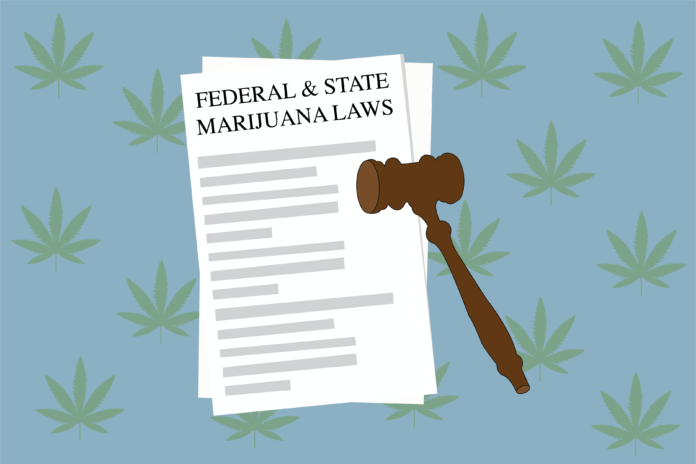Meetings will discuss Cannabis Land Use Ordinance, environmental impacts detailed in Draft Environmental Impact Report
Two community meetings will be held in Davis in early December to educate citizens about the proposed regulations for growing cannabis in unincorporated Yolo County. The meetings are the first two of nine scheduled throughout the county after the release of the Draft Environmental Impact Report (DEIR), which assesses the environmental impacts of the Cannabis Land Use Ordinance.
The DEIR was made public on Oct. 25. It is currently under a 60-day public review period before a Final Environmental Impact Report can be completed and reviewed by county officials.
According to the document, the DEIR focuses specifically on the issues of “aesthetics, air quality and odors, biological resources, greenhouse gas emissions and climate change, hydrology and water quality, noise, cumulative effects, and overconcentration,” with regards to cannabis cultivation in the proposed Cannabis Land Use Ordinance (CLUO).
Susan Strachan, the cannabis policy and enforcement manager for the Yolo County Department of Community Services, said the 720-page document was the result of a “team approach.”
“We had some consultants that worked on it with us — our county’s Counsel Office was involved, the Director of Community Development was involved and our county’s principal planner was involved,” Strachan said. “It’s a huge effort.”
This process, including the development and finalization of the DEIR, prepares for the incorporation of the CLUO into Chapter 20 of Title 5 of the Yolo County Code. Depending on the decision made by the Yolo County Board of Supervisors next spring, the new addition could either increase or decrease cannabis activities in unincorporated parts of Yolo County.
The draft has five proposed options that vary in the authorized types of cannabis activities, the zoning location and buffer requirements and the total number of operations. The first option has the smallest number of licenses and only allows cultivation activities of the current 78 existing operations.
The second and third alternatives allow all types of cannabis use and have higher numbers of allowed operations (132 and 264, respectively). The fourth alternative only allows operations indoors or in greenhouses. And the fifth would limit the operations to agricultural zone districts besides retail.
The Environmental Impact Report has been under public review before, but only when it was an outline in a Notice of Preparation. The Notice of Preparation was published on Aug. 24 2018, and many state agencies — as well as community members — provided responses during the public feedback time.
Concerns from community members include the proximity of cannabis operation sites to local farms, regulating the odor emitted by cannabis and misuse of land and water resources by the cannabis license holders. One member, Matthew Trask of Dogtown Farm, noted how more cannabis activity could affect housing in the community.
“Our community in the Capay Valley has seen that growing and especially processing of cannabis involves a substantial number of employees, with one grower in the area employing 50 people for trimming alone,” Trask wrote in a comment letter. “The shortage of housing in the County, and especially in the Capay Valley and many other rural regions in the County, is already a major problem, and especially so for seasonal workers, and enactment of the proposed CLUO has potential to greatly increase the severity of this shortage.”
After the current comment period is over, the final EIR will include the comments and responses to such comments as well as adjustments to the DEIR based on the concerns from the community. The final EIR will be presented to the county’s citizen advisory committees, and the final decision by the Board of Supervisors will not happen until May or June, according to Strachan.
“These committees make recommendations to the Planning Commission,” Strachan said. “They’re going to make recommendations on the Cannabis Land Use Ordinance — buffer distances, license and license types. Then the planning commission will make a recommendation to the Board of Supervisors.”
Comments for the DEIR can be submitted by the public until Dec. 23 at 4 p.m. and written comments can be sent to the Yolo County Department of Community Services. Oral comments can also be made at the Yolo County Planning Commission Meeting on Dec. 3. The Davis meetings will occur on Dec. 2 at the South Davis Citizens Advisory Committee Meeting and on Dec. 3 at Unitarian Church in West Davis.
Written by: Madeleine Payne — city@theaggie.org



